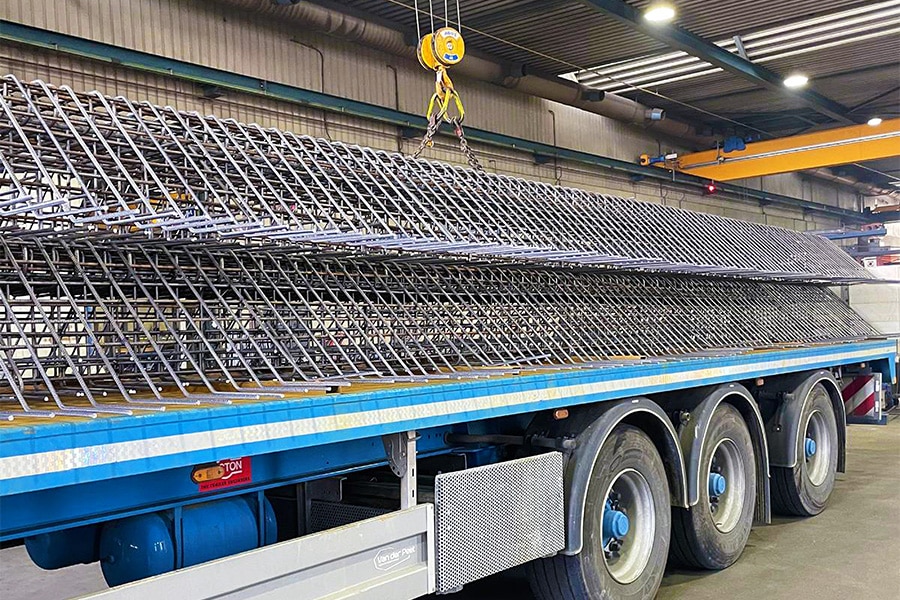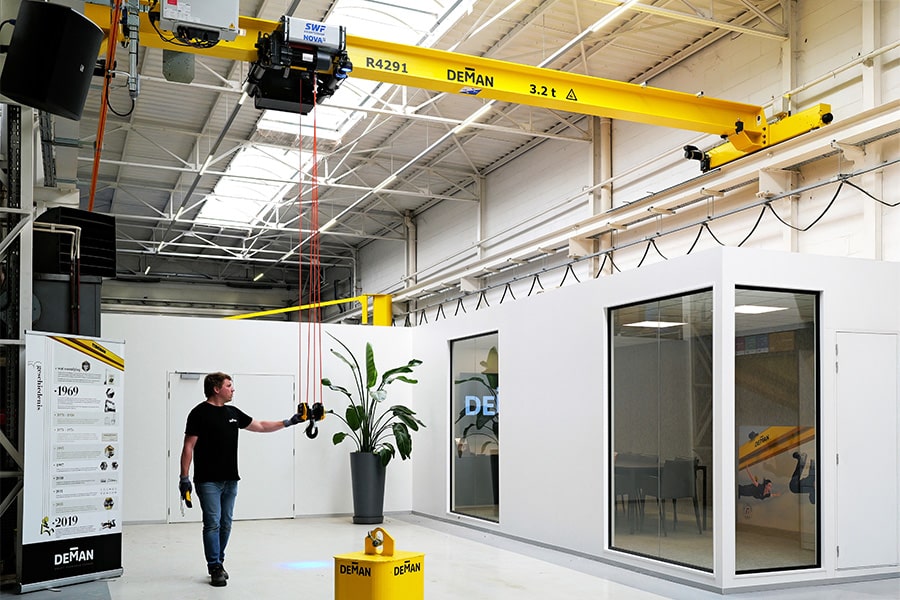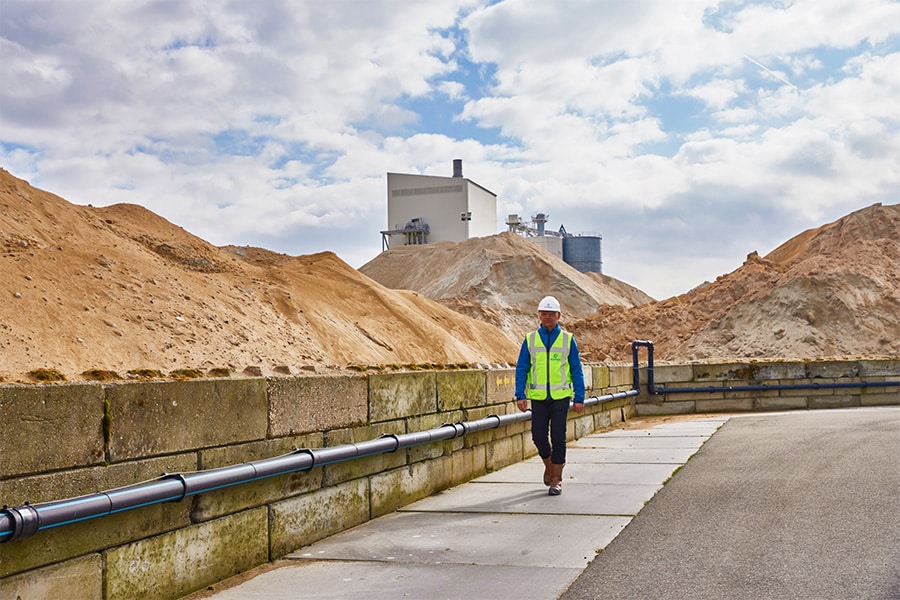
'There is no holy grail in the concrete industry'
For Jeroen Langenberg, it is clear that the construction industry and government have been procrastinating for too long. The commercial director of Ecocem Benelux believes steps must now be taken quickly with what can be done. "The Netherlands has been a leader for decades when it comes to clinker replacement in concrete. However, I see other countries approaching with great strides. Fine, because then we are making Europe more sustainable, but if we as the Netherlands want to maintain our position, then we have to join forces very quickly and take action. Targeted and above all decisive."
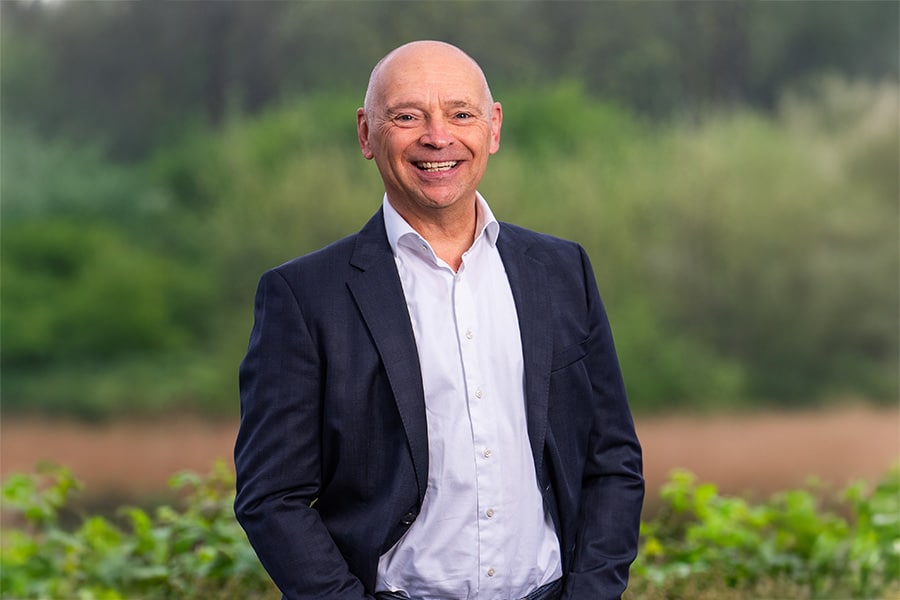
How do you look at the current market and what needs to be done?
"The concrete market is tense because the overall construction volume is lagging. A lot of construction is based on concrete, which starts with the piles and foundation. So you notice a declining construction first in the concrete sector. Surrounding countries like Germany are in a similar situation as the Netherlands. From those countries, cement and concrete are therefore finding their way into our border region. That puts even more pressure on prices and volumes in our region. Construction is a bit paralyzed. After the banking crisis and PFAS crisis, we are now in the nitrogen crisis and the CO2 crisis is already waiting around the corner. Builders' order books are filled, but there is a lack of permits to go wild. An impasse that must be broken quickly."
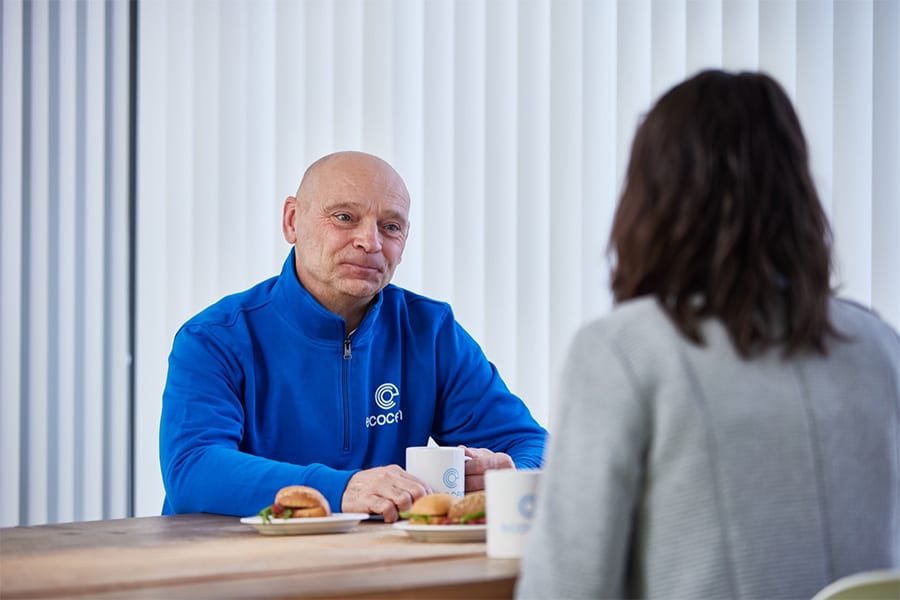
Isn't sustainability very timely and dependent on an incentive?
"Ecocem has been on the market for over twenty years as a provider of a highly sustainable alternative to Portland cement. In the beginning we had to fight to get our foot in the door somewhere. In the meantime, however, the mindset has changed so much that people seek out the conversation with us on their own accord, from clients to engineers and from construction companies to concrete plants. People see that sustainability is necessary, but unfortunately are still not willing to pay more for it. So we remain in competition with unsustainable products. See what is happening now that the solar panel net-metering scheme is disappearing; that market has virtually ground to a halt. Despite the acute situation we are in, we are not yet willing to pay more for a sustainable product."
So we are not doing well in terms of sustainability?
"No, on the contrary. As mentioned, the Netherlands is the world leader in terms of CO2 emissions from concrete. We are fine-tuning more. Other countries are therefore often looking at us to see how we have handled it here. Ecocem is doing its best to facilitate this. We have built four factories in the last two decades and are already supplying 2.5 million tons of product annually. We are working on a fifth factory and there are far-reaching plans to expand further in Europe. However, each country has its own laws and regulations, so not everything is allowed and possible everywhere. In Germany, for example, we are allowed to supply CEMIII, but not loose slag with which a power plant can make its own sustainable mixture."
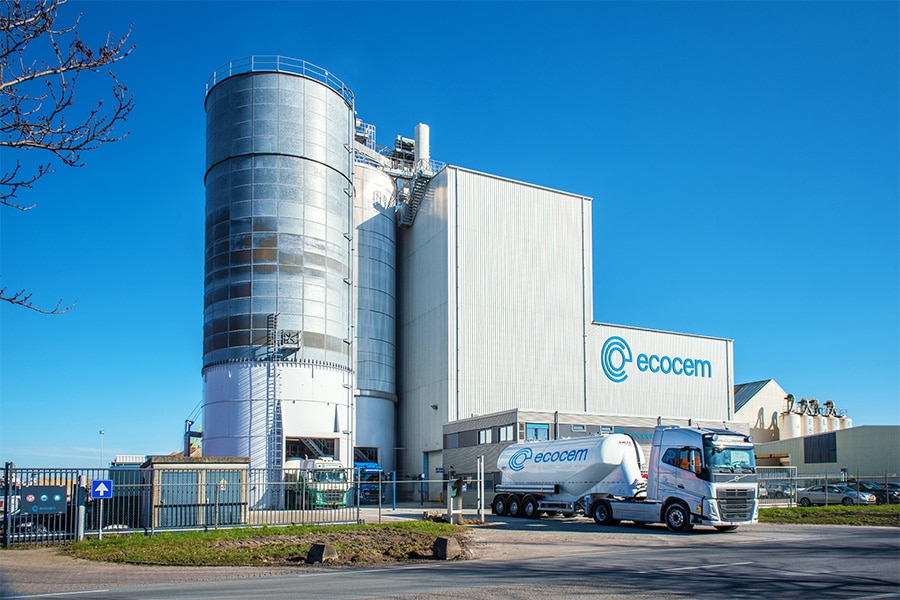
Ecocem wants to make the cement industry sustainable, where are you guys?
"We do indeed have a solution that can do that. We have talked to all the major international players over the past two years, but see that everyone still opts for their own solution. That is why we are currently investing heavily to market ACT cement ourselves in all the countries where we operate. For example, we are already converting the plant in France, the Moerdijk plant is going to be rebuilt and several other substantial investments are in the pipeline. Still, there are a few successes. Cemex in France is going to use our ACT technology for sustainability and Titan in Greece has also now made that choice. They see ACT as the right and fastest route to a sustainable construction industry. Perhaps based on these two major players, more will follow."
I hear you guys mention ACT more often, what exactly is it?
"ACT is a low clinker binder that revolves around the smart use of SCMs (supplementary cementitious materials). All blast furnace slag worldwide can now preserve only 10% of all concrete. Based on our ACT technology, we can triple the effectiveness of that amount of blast furnace slag. That means a giant leap forward. The advantage of ACT is that it uses raw materials that are widely available locally and thus may vary by country. The technology provides a consistent cement with a very low clinker content. Our ACT technology rests on the three pillars of feasible, affordable and scalable. No weird additives, no adjustments to your process and applicable everywhere."
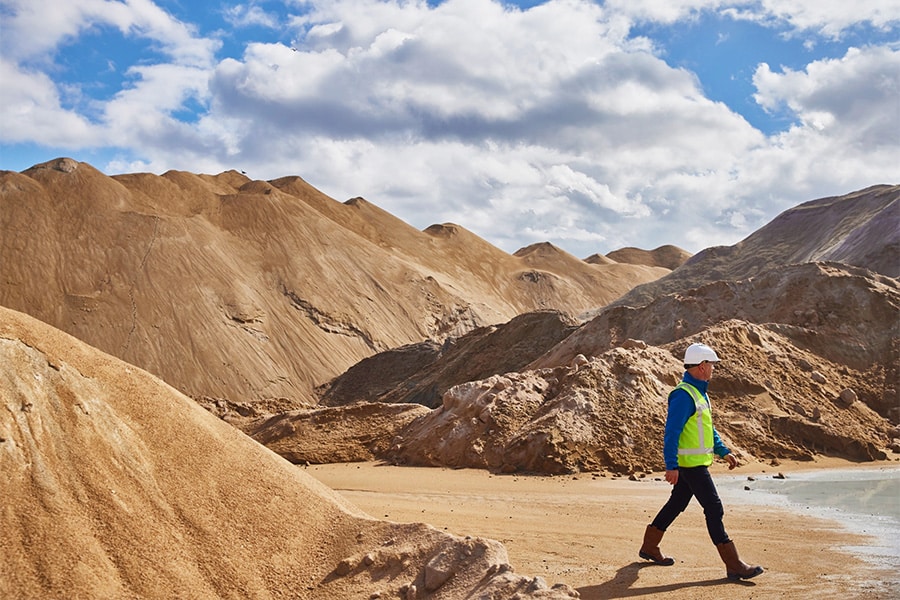
So the availability of GGBS is declining, will there be CEMIII soon?
"We still have more than enough slag for the next few years. Our ACT cement achieves values similar to a CEMIII/B, so that's a good choice to move forward with less slag. We are now seeing imports of slag from China, but that is a direction we should not go. First of all, transport by ship, storage and transfer in the ports and transport by trucks add a lot of CO2 to blast furnace slag. That is not going to help sustainability. In addition, quality is difficult to guarantee and there is also no security of supply, because when construction in Asia picks up, the GGBS will be used again itself. In the Netherlands we have a discussion about Tata Steel, but we can also see that as an opportunity. In fact, Tata has the potential to be the greenest steel producer in the world in 15 years, but then we have to be willing to invest in it. We are a densely populated country, creative and entrepreneurial. If we cannot tackle this kind of problem, who will?"
So the government should be leading?
"People often need a push. Now too often a choice is made on euros. The government can influence that by building in incentives. Sustainability must pay off. Europe will help us by having maximum CO2 levels for new construction in 2030, but we can already do more now. That starts with the government's own demand. Make EQI a mandatory tool and more importantly, then verify it. Price CO2 properly and offer benefits to sustainable choices especially in hard-to-abate sectors. Ultimately, the market is creative enough to come up with the right solutions. And we follow all those market developments with interest. We cannot solve the whole task on our own, we need all the solutions in the end. We have to do it together. If we want to maintain our leading position, we have to keep going. That goes for the government, but also for the construction sector itself. Don't wait for the holy grail, for a scalable zero carbon solution. There isn't one. Do now what is possible, and that is to choose a radical reduction of CO2. That solution does exist."
Heeft u vragen over dit artikel, project of product?
Neem dan rechtstreeks contact op met Ecocem.
 Contact opnemen
Contact opnemen
